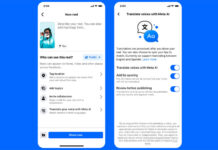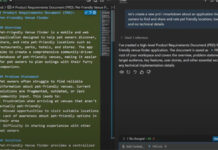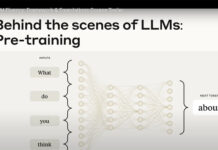Ray Schroeder Discusses The Plight of Small Colleges in the Age of Online Learning and the Promise of AI in Personalized Learning
Henry Kronk | IBL News
Professor Emeritus Ray Schroder finds it difficult to stop working. As the Associate Vice Chancellor for Online Learning at the University of Illinois Springfield and the founding director of the National Council for Online Education at the University Professional and Continuing Education Association (UPCEA), he has a lot on his plate.
IBL News recently got in touch with Professor Schroder to discuss his current work and a few trends in online learning.
The interview occurred on the afternoon of March 12th, and the first topic of conversation had to be the admissions scandal that had come to light that morning.
Ray Schroeder: I think it has more than anything to do with the egos of parents. My older daughter was a National Merit Scholar, which meant she had admission to just about any place with full rides. But she chose a little place, Bradley University, and it fulfilled her dream of teaching. She’s quite successful.
I’m a believer in the idea that going to the top-ranked schools doesn’t necessarily get you much more than the first job. After that, you really do have to prove yourself.
Henry Kronk: A lot of the professional world has shifted its focus away from degrees and towards competencies. [Venture capitalist and entrepreneur] Peter Thiel was paying people a few years ago to drop out of college.
Ray Schroeder: The variables include the fact that state funding to state universities has not risen. In Illinois, for two years, we had no budget. It’s difficult now, but we had no state dollars and we had to live off tuition, grants, and all that. Now tuition is going up. Students can’t afford it; they don’t think it’s worthwhile. We’re at $1.5 something trillion dollars in debt. I understand the tuition challenge. In our case, we try to make it as affordable as possible.
Henry Kronk: I don’t want to get too political, but I wonder about the state funding question. A typical public institution takes roughly 17% of its total revenue from state appropriations. When half of that goes away, it’s a big deal. But it’s also not the entire story. Yet, so many education experts put all their chips on this one issue. It’s not that I don’t think states should increase their appropriations for higher ed, but the argument also strikes me as reductive. There’s more to the story of rising tuition than state funding going away.
Ray Schroeder: I’ve written a little bit about this issue for Inside Higher Ed and the Association for Professional, Continuing, and Online Education (UPCEA). I started long, long ago. I was a reporter in the late ‘60s–the 1960s that is. I retired in ‘01 but came back the next day and started to work for this association at 1 Dupont Circle in D.C.
We’re selling day-old doughnuts, maybe week-old doughnuts. We sell it like a doughnut maker, and it’s take it or leave it. That doesn’t work anymore. We’re so high-priced, and competition has gone so crazy with online learning. Anyone can enroll in any place. You have to have a product that is 1) relevant and 2) affordable. Our model is not in tune with what students and employers need. It used to be that we, that is, the professoriate, would decide, “You need to know Greek history,” or “You need to know this and that.”
That’s all well and good, but we’re not the ones paying the bill. Society and times have changed. So we have to change. We have to be more relevant to meet their needs.
I went to a small liberal arts school–Augustana College. Again, this was the ‘60s. It was great for me to get a broad education and then specialize at the graduate level. I don’t see that as being a large-scale model anymore.
When we look at the at-scale models, like Georgia Tech’s computer science program, that’s affecting everybody. They found an efficient way to deliver a degree and they’re leveraging AI to give–I use this term cautiously–a personalized approach to serving students. An individualized approach would probably be the better term. Professor Ashok Goel there developed Jill Watson (an AI teaching assistant) and he continues to refine it.
These are pieces of progress that we’re seeing. One of the questions I pose is: “What about University of Illinois Springfield?” We’re a little school, about 4,500-5,000 students. We’re losing students to at-scale universities like Southern New Hampshire University and Georgia Tech and Arizona State. I love the people there. They’re great; they’re innovative. I see UMass Online is just launching a new initiative as well. We lose students to these institutions. We’re not price competitive.
You see every day a growing list of small colleges that have met their demise. It’s just like newspapers, right?
Henry Kronk: I think that analogy works on certain levels. But in other ways, it doesn’t hold up. There can’t be a large volume of SNHUs, of ASUs, of Georgia Techs, in the online space. The amount of first time undergraduate students are dropping and projected to keep falling. It won’t be possible to keep every small U.S. college alive online.
Ray Schroeder: I agree–if we imagine the institutions as they are now. If we adapt, if we provide micro certifications, if we allow for agile just-in-time learning, if we were to focus on areas where micro markets, perhaps even international markets, that isn’t the case. I was surprised to learn recently that Nigeria will have more people than the U.S. by 2030. Sub-Saharan Africa is growing like crazy. Look at China and India. There will be markets there to serve. There is potential.
But we have to change. It’s very difficult in higher ed. I started teaching as an instructor at the [University of Illinois] Urbana campus in the College of Communication in 1971. I’ve been at this for close to half a century now. I’ve seen a lot of changes. But I haven’t seen anything like we’re seeing now, and for the past five years.
Certainly, I was there in the mid-‘90s with the beginning of online learning, and that was very exciting as it disrupted higher ed. But it’s a lot less pleasant to be disrupted.
Henry Kronk: When online learning started to become viable, a lot of people believed it would improve equity in higher education. The idea is, “We’re removing one more barrier.” Do you think that has played out, and to what degree?
Ray Schroeder: I think it has among certain populations: single parents, motivated learners, mid-30s professionals. They all have a fairly successful track record online. But there are other populations it has not served.
Online learning is far less effective for developmental students. These are the students who didn’t do well in Algebra, who didn’t do well in writing and literature, who don’t start college as competent writers. They have been failed by their middle schools and high schools. There are cultural issues there too, but these are students who have not developed the abilities that generally are expected at the university level.
What we find, generally, is that community college students are less successful online than are, for example, our [UIS] students. We have 25 degrees online. Roughly half of them are degree completion programs. We require 30 credit hours to be completed before you can enter them. The hard work, with our students who have been incompletely taught, takes place at community colleges. Once they’ve developed to that ability, online works well.
There’s also a loose observation that I would make–take it for what it is. The 35-year-old who’s paying out of pocket, who is a single parent, and whose job advancement depends upon completing the degree, is more motivated than an 18-year-old who is just coming out of high school, and for whom someone else is paying tuition. They just don’t have the same life experience. It takes self-motivation online because you don’t have a whole dormful of cohort saying, come on let’s go to school, let’s go to class.
We have not successfully served those students who were not given the opportunity to meet certain standards in elementary and secondary school. That’s our challenge.
This leads into one of the questions you posed [via email before the interview], which is, “How can artificial intelligence be used to customize and individualize learning for students?” It can quickly and individually diagnose what shortcomings there may be. It can know “this student didn’t learn about Greek philosophers, didn’t learn a certain level of vocabulary, didn’t reach a certain writing ability or this or that.” AI can respond to each of the students in a composition class of 30. It can say, “Take this module, go to this lesson in Khan Academy, before you begin working on this project.” If you have a class of 30, it’s very difficult for a faculty member to do that kind of individualized work. And so, commonly, we aim at the middle of course. It’s boredom for the advanced, and it’s a struggle for the less experienced students at the bottom.
Henry Kronk: My response has to be: What makes you so sure AI can do that effectively?
Ray Schroeder: Well, we’re seeing some of it already, but it is very early. AI is all about being given lots of examples. Deep learning takes those examples and begins to build algorithms. “If a student misuses this or does this, we know they tend to succeed when given this module.” It develops over time.
It’s the same with AI making medical diagnoses. You have to feed in every new published study. There are about 700,000 peer-reviewed articles published every year in the field of medicine. My doctor doesn’t read all 700,000, but a computer can assimilate that in a few minutes and then go through a process of applying those to complaints, symptoms, lab results, etc. At the end, it can make a diagnosis and prescribe treatment.
It’s the same in education. It’s about being able to collect all this data.
Henry Kronk: I’m on board with the fact that AI bots can do a few things well. They do well with the assessment and diagnosis of students. They can also potentially do well in leading them on to the next step based on the steps that other successful students have taken in the past. But this is only getting at part of the process. It assumes that a student will be receptive to this kind of instruction. It’s going to involve at least some time on the computer and significantly less interaction with their instructor. Are you confident that it can be deployed successfully?
Ray Schroeder: I’m confident that it will be. We’ll see incrementally more over the next decade. Candace Thille has done some pioneering work in the area of adaptive learning. Adaptive learning is the core–we used to do that in the ‘70s with PLATO. It was branching. Depending upon which wrong answer the student gave, it took them to the corresponding module. I think there’s a great advantage to high-touch faculty intervention. A faculty member wouldn’t stand away from the course, they would be there daily giving reinforcement. You know, ‘Great job, it’s so great that you learned that, what a creative response you gave.’ Getting a personal reinforcement is very positive. But the path tends to be drawn from a wide array of options from the computer.
The computer can provide the reinforcement too. As I’m sure you’ve read about Jill Watson, people didn’t suspect she was a computer, it was all natural language–I said ‘she’–it was a computer program.
But I digress. Yes, I’m confident it can work. I think it works best if there is human faculty oversight and engagement with the student. It takes both to be most successful.
Henry Kronk: Let’s talk about the recent Personal Data Protection Commission’s recent AI governance framework. This document obviously wouldn’t have been produced if people didn’t have concerns about AI. Walk me through some concerns you have and let me know whether or not they are adequately addressed by this document.
Ray Schroeder: It’s a beginning. Their attitude during their release in January was, “Test this out, get back to us with your thoughts, and we’ll revise it.” The late Stephen Hawking, [Steve] Wozniak, [Bill] Gates, Elon Musk–they all are worried about AI. They’re worried it will take control. It is very powerful. If it becomes self-cognizant–it already is to some extent–it can take over systems if we let it. There are many, many other smaller concerns along the way on how it might infringe on privacy, and the like.
But the question becomes ultimately: Will we see a conflict of interest where the computer says, “I know what’s best for you, human, and therefore, I will do it”?
To highlight this, I’ll use an example of self-driving cars. Let’s say an autonomous car is driving along and it comes to a predicament where there are two older people like me cutting across the road and it has two options: hit them or run up over the sidewalk and hit three children. How do you value that decision? Do you let the computer? Of course, you need to. The computer is driving the car. But how do you instill values? Who has the right to decide those values? What are those values?
That’s a real scenario. There are a million others I’m sure.
Applied to universities, it’s the same. Do we apply resources to the developing students or to the advanced? Do we put it in labs or social sciences? Colleges and universities will need to make these decisions. We need to have controls. Or at least we have to set standards and values.
Henry Kronk: So how is quantum computing going to change the use of AI in personalized learning?
Ray Schroeder: Quantum computing is going to speed up the process, perhaps by 10,000 times. What now takes 10,000 hours will take an hour. It will also give us the ultimate security. Normally, we would transmit information with a stream of data. That data goes from one place to another. If we use entangled Q-bits (as in bits, but quantum bits) information transfer will happen instantly with nothing in between. There’s no way to intercept it. If you do something to one particle, it happens to the other particle, even if it is 10,000 miles out in space.
Those qualities are going to enhance security and enhance speed. That’s going to allow us to do more complex and more sophisticated functions.

 En Español
En Español











![Apple Marketed Its New iPhones As a Best-In-Class Hardware, Not As an AI Device Maker [Video]](https://iblnews.org/wp-content/uploads/2025/09/iPhoneair-218x150.jpg)










